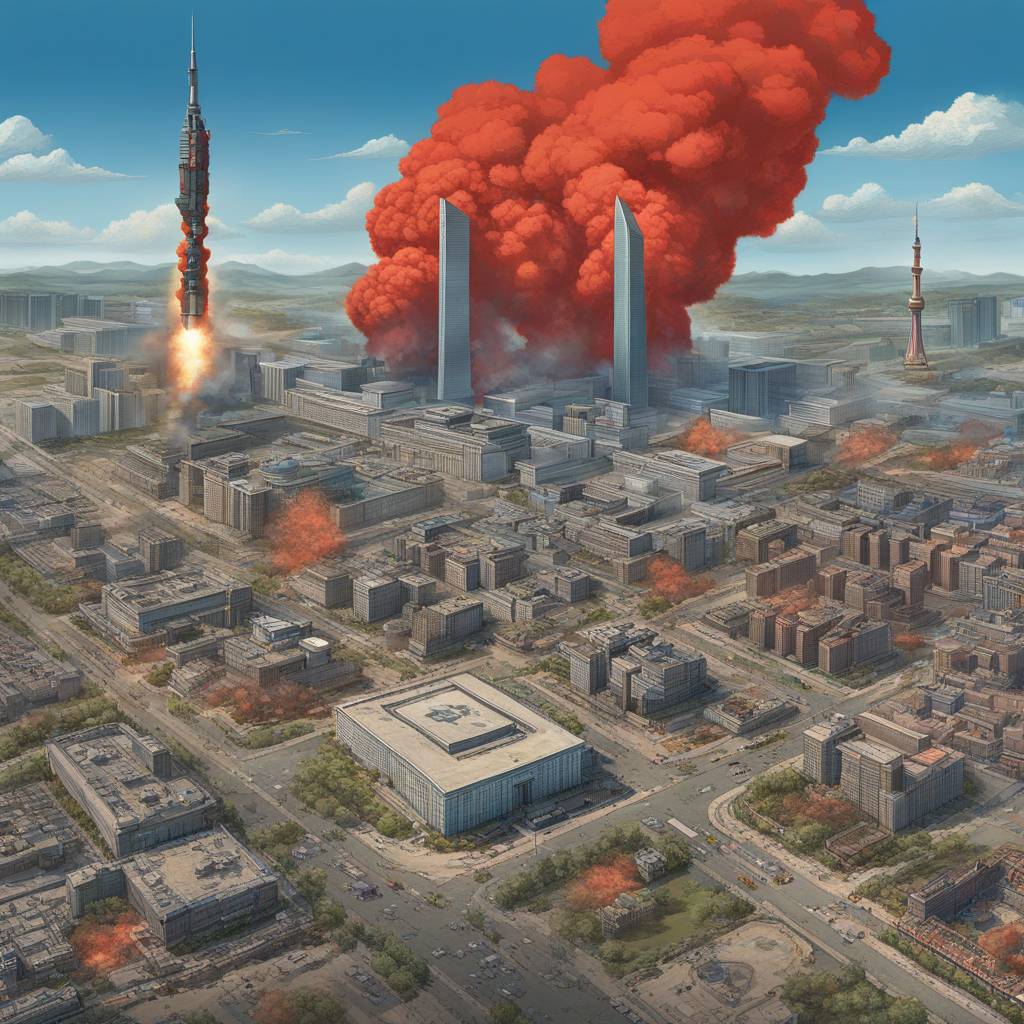In a recent United Nations Security Council vote, Russia wielded its veto power to abolish a panel of experts tasked with monitoring North Korea’s compliance with U.N. sanctions on its nuclear weapons and missiles programs. This move has drawn criticism from Western leaders who argue that it hampers efforts to address North Korea’s weapons programs, especially in light of allegations that North Korea is supplying weapons to Russia for its war against Ukraine. The veto effectively ended the mandate of the panel, which has been renewed annually for the past 14 years.
While 13 of the 15 member countries of the Security Council supported the resolution to renew the panel’s mandate, Russia’s veto meant that it did not pass, as all resolutions require unanimous support from the council’s five permanent members. As a result, the panel will no longer be able to conduct its critical work of monitoring North Korea’s adherence to sanctions. Russian Ambassador Vasily Nebenzya justified the veto by claiming that the sanctions against North Korea are outdated and detached from reality, accusing the panel of bias. He called for a review of the existing sanctions, accusing the West of trying to suffocate Pyongyang.
U.S. Ambassador Robert Wood countered Nebenzya’s claims by emphasizing the panel’s credibility and the importance of its independent investigations into North Korea’s weapons program and sanctions evasion efforts. Wood also highlighted the panel’s reports on Russia’s violations of U.N. Security Council resolutions and its alleged cooperation with North Korea in evading sanctions. The veto has drawn widespread condemnation from world leaders, with White House National Security spokesman John Kirby deeming it reckless, and French Ambassador Nicolas de Rivière expressing deep regret over the decision.
The vote comes at a time when concerns are mounting over North Korea’s accelerated weapons program, with the country conducting multiple missile tests in 2024. There is also speculation about the extent of cooperation between Russia and North Korea, especially in the context of Russia’s conflict with Ukraine. Last year, reports emerged that North Korea delivered a significant amount of military equipment to Russia, raising questions about the two countries’ relationship and potential collaboration in evading sanctions and acquiring weapons.
This recent incident adds to the existing tensions between the United States and Russia within the U.N. Security Council. Just last week, Russia and China vetoed a U.S.-drafted resolution calling for a cease-fire in Gaza, leading to further diplomatic sparring. These clashes highlight the geopolitical dynamics at play within the Security Council and the challenges faced in addressing global security issues and conflicts. The events surrounding the Russian veto on North Korea sanctions underscore the complexities and interests at stake in international diplomacy and the ongoing efforts to promote peace and security on the global stage.


